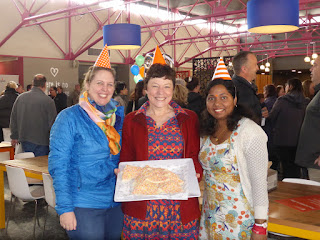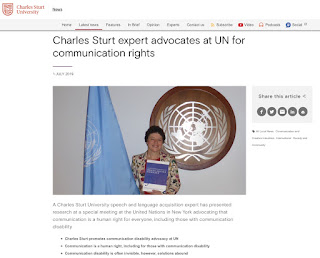Blake, H. L., Bennetts Kneebone, L., & McLeod, S. (2019). The impact of oral English proficiency on humanitarian migrants’ experiences of settling in Australia. International Journal of Bilingual Education and Bilingualism, 22(6), 689-705. doi:10.1080/13670050.2017.1294557
Free download (50 copies):
https://www.tandfonline.com/doi/full/10.1080/13670050.2017.1294557#.XT_QoEnsPlA.twitter
Here is my short summary for Twitter:
Oral English proficiency was the largest predictor of self-sufficiency (get a job, get help in emergency) (explaining 21% of variance) followed by age, gender, education, and time since arrival.Here is the abstract
Key drivers for migrants’ social integration are education, employment, and skills in the dominant language of the settlement country. Data from Building a New Life in Australia: The Longitudinal Study of Humanitarian Migrants were used to examine migrants’ English proficiency and how oral English proficiency facilitated or hindered participation in activities that may help them become self-sufficient and settle. Participants were 2399 humanitarian migrants interviewed in the first wave of data collection (during 2013/14). Before arrival in Australia, 80.1% reported they spoke English not well or not at all. After arrival, oral English proficiency was a statistically significant predictor of self-sufficiency (knowing how to look for a job, get help in an emergency, etc.) explaining 21% of the variance while controlling for confounding variables such as age and education. After English proficiency, age (neither too young nor too old), gender (male), education (more than 12 years), and time since arrival (more than one year) were significant predictors of self-sufficiency. Identification of factors that predict self-sufficiency informs the understanding of people who provide support for humanitarian migrants. These findings indicate poor oral English skills may profoundly hinder humanitarian migrants’ ability to settle and highlight the importance of supporting migrants’ English learning.


















